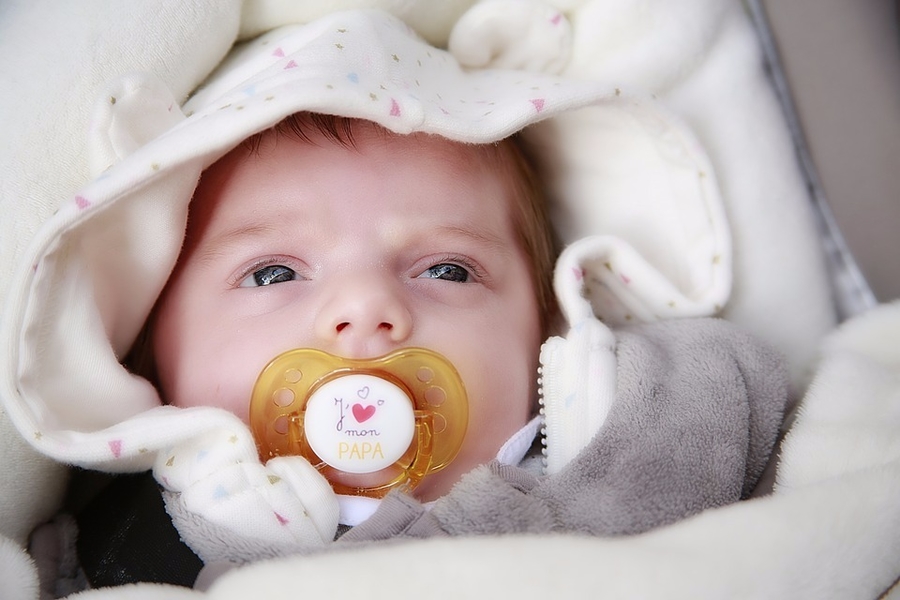
Loose Motion In Babies: What Causes Them, And Practical Tips To Manage
6 Dec 2017 | 4 min Read
Babychakra
Author | 1369 Articles
Loose motions in babies are every new mom’s nightmare
Taking care of a baby is not child’s play. The baby is sensitive to the smallest changes in the environment and diseases like cold, flu, fever, due to which loose motions are a common place. Diarrhoea in babies can be dangerous if not treated in time.
Loose motion in babies is an extremely common condition that usually lasts for less than a week. Many parents worry when their newborn has diarrhoea as babies tend to have very frequent bowel movements. The nature of the stools will depend on whether the baby is being breastfed or formula fed. Loose stools are frequently seen in breastfed as well as formula fed babies. The baby may be suffering from diarrhoea if he/she is passing stools more than usual, stools are smelly or if there is fever and weight loss along with dehydration.
What causes loose motions in babies?

- The most common cause of loose motion in babies is the rotavirus. The virus damages the gut and lining of the intestine, which causes gastroenteritis. Babies between 6 and 24 months of age are more prone to rotavirus infections as it gets difficult to maintain hygienic conditions once they begin crawling.
- Other causes of loose motions in babies include the following:
- Formula feeding
- Allergies
- Antibiotics
- Cold
- Food poisoning
- Diet changes
- Loose motion during teething
How to prevent loose motion in babies?

Here are some practical tips to control loose motion in babies
- Fluids
Babies with diarrhoea need to be given adequate and appropriate fluids to prevent dehydration. If the baby is being breastfed, keep on breastfeeding the baby on demand. If your baby is formula fed, do not dilute the formula. If the baby is unable to take either, give him/her an oral rehydration solution, which is directly available at a pharmacy. Kunjee (rice water) is an excellent home remedy to keep your child hydrated. You can also give coconut water, or a home made oral rehydration solution. Mix the juice of 1 lemon, 1/2 tsp salt and 6 tsp sugar in 1 litre of boiled and cooled water. Keep offering fluids every 15 minutes to the baby, so that the baby does not puke out the fluids when trying to give larger quantities together. Avoid milk and buttermilk at such a time. You can give fresh curd as this will also help stop the diarrhoea.
- Do not force feed the baby

Avoid forcing the baby to eat more than he desires. It is important to understand that the baby needs liquids more than solids. Allow the baby to eat as per his demands. Try to set an eating schedule and stick to it in order to set a routine.
- Give healthy foods

Babies who have started eating solid foods need to be continued giving their normal foods during diarrhoea. Several doctors recommend giving starch rich foods like oatmeal, carrots, apples, and bananas to build up on the lost fibre and help stop the loose motions too.
This video gives you a healthy and easy to make rice and daal recipe that you can feed your baby during loose motions.
- Visit your paediatrician

Lastly, if neither of the home remedies work, or if the baby shows symptoms like fever and dehydration, or the existing symptoms worsen, it is best to visit your paediatrician for prompt treatment.
Disclaimer: The information in the article is not intended or implied to be a substitute for professional medical advice, diagnosis or treatment. Always seek the advice of your doctor.
Also read: 5 Expert-Approved Natural Remedies for Loose Motions in Babies That Are Sure to Heal!
A


Related Topics for you
Suggestions offered by doctors on BabyChakra are of advisory nature i.e., for educational and informational purposes only. Content posted on, created for, or compiled by BabyChakra is not intended or designed to replace your doctor's independent judgment about any symptom, condition, or the appropriateness or risks of a procedure or treatment for a given person.
